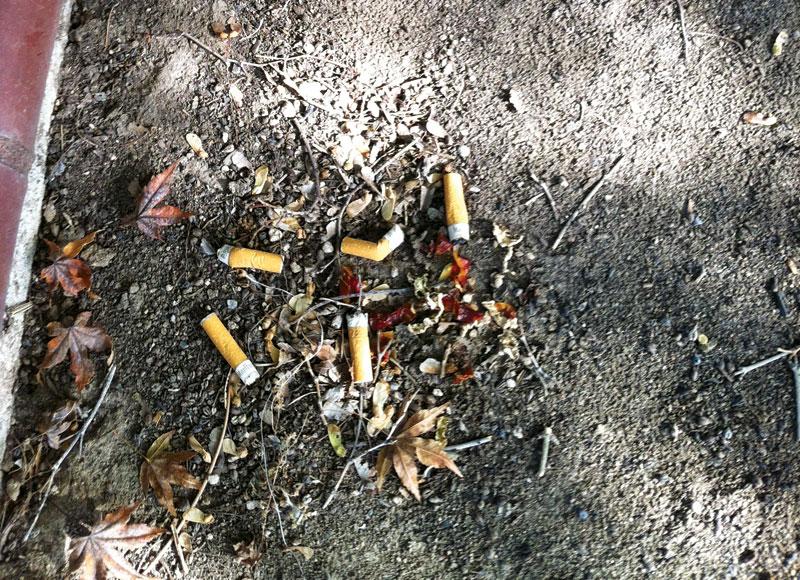
Sarah Boyle / The Collegian
On Sept. 22, students and members of the Project IMPACT (Individuals, Mentors and Peers Advocating to Control Tobacco) 4 Life club met at the Fresno State water fountain to discuss their plan to do a cigarette butt cleanup around campus to draw attention to the issue of smoking on campus.
At 8:30 a.m., 15 volunteers broke into groups and were assigned different areas across campus where they picked up cigarette butts, trash around the area and also to check if the green ‘designated smoking area’ signs were still posted in those areas.
IMPACT did the cleanup to demonstrate that tobacco litter is everywhere on campus, not just in the designated areas, said Melanie Ruvalcaba, IMPACT program manager. Cigarette butts contain toxins and a lot of people do not know about how those toxins impacts everyone and our environment.
The club wants to encourage students to make healthy choices and at the same time work to decrease the negative impacts of tobacco for future generations. Fresno State’s campus has eight institutes and centers, some involving children who are exposed to these toxins as well.
“I have clients who come to our campus, mostly children, coming to our campus for speech services,” said Katie Crane, speech language pathology grad student.
“These particular people have designated parking spots, which coincidentally put them right by a designated smoking area on campus. I don’t think that these people should have to walk through these areas and be exposed to secondhand smoke.”
According to the Centers for Disease Control and Prevention, breathing secondhand smoke can have harmful effects on the cardiovascular system that can increase the risk for heart attack.
For children, they will experience frequent and severe asthma attacks, shortness of breath, bronchitis, pneumonia and ear infections. In a short amount of time, exposure to secondhand smoke can lead up to regular asthma attacks.
“When I get around cigarette smoke, my asthma gets inflamed,” said Nicole Diele, communication student. “I know it’s a free country and people can do what they want, but when I want to lead a smoke-free lifestyle that gets compromised by someone else’s decision to smoke, they are taking my choice and right away to live a smoke-free life.”
Students are allowed to smoke on campus and there are designated smoking areas so that other students who wish to be smoke-free can still reserve the right to do so.
But those areas have slowly decreased in the last two years.
“One thing we found was that a lot of the ‘designated smoking area’ signs were missing,” Ruvalcaba said. “It’s unclear if the smoking areas have officially been moved or if the signs are just not out yet. There is no use in having designated areas if they are not enforced, which clearly they are not.”
For students, IMPACT will have a display this week of the cigarette butts found to create awareness. There will be a short survey on smoke-free and tobacco-free campuses and a contest where students guess the number of cigarette butts found during the cleanup.
Students who want to make a difference on campus and get involved with IMPACT can send an email to [email protected] and meetings are held every other Monday in the Henry Madden Library room 3131 at 2 p.m.




